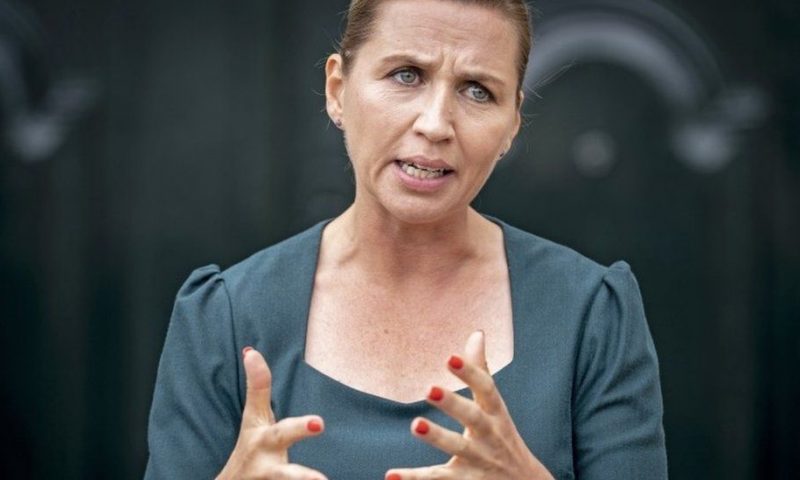Some migrants in Denmark will now be required to work 37 hours a week in order to receive welfare benefits.
It will be a requirement for those who have been on benefits for three to four years, and who have not reached a certain level of proficiency in Danish.
Prime Minister Mette Frederiksen said the rules were directly aimed at women from “non-Western backgrounds” living on benefits.
Denmark has repeatedly tightened its immigration policies in recent years.
It now has some of the toughest rules in Europe, and has set a target of zero asylum applications.
The government said the new plan was designed to help migrants assimilate into Danish society, but some have said the rules are misguided and unfair.
“We want to introduce a new work logic where people have a duty to contribute and be useful, and if they can’t find a regular job, they have to work for their allowance,” Ms Frederiksen told reporters.
“For too many years we have done a disservice to a lot of people by not demanding anything of them,” she said.
The prime minister said that the rules were aimed at migrant women. The government says six out of 10 women from the Middle East, North Africa and Turkey are not in work.
“It is basically a problem when we have such a strong economy, where the business community demands labour, that we then have a large group, primarily women with non-Western backgrounds, who are not part of the labour market,” she said.
Employment Minister Peter Hummelgaard said the jobs could range from picking up cigarette butts on the beach to working in companies.
But Mai Villadsen, spokeswoman of the left-wing Unity List, criticised the plan, which needs to be approved by lawmakers.
“I’m afraid this will end up as state-supported social dumping, sending people into crazy jobs,” she told broadcaster TV2.
Nejat Chafehi, a 51-year-old migrant living in Copenhagen, said the rules were “not the solution”.
“She has no idea what she is talking about,” she told TV2 outside a job centre, in reference to the prime minister.
Ms Chafehi added that she and many other migrant women are actively looking for work.
“How do you work when you get so many rejections?” she added.
But Dekar Muhamed, a migrant who is unemployed, said: “It is good that you have to work if you can.”
Asylum applications have fallen sharply under Ms Frederiksen, who has been in power since 2019.
Just 851 were received between 1 January and 31 July. This follows a peak of more than 21,000 asylum seekers arriving in Denmark in 2015.

